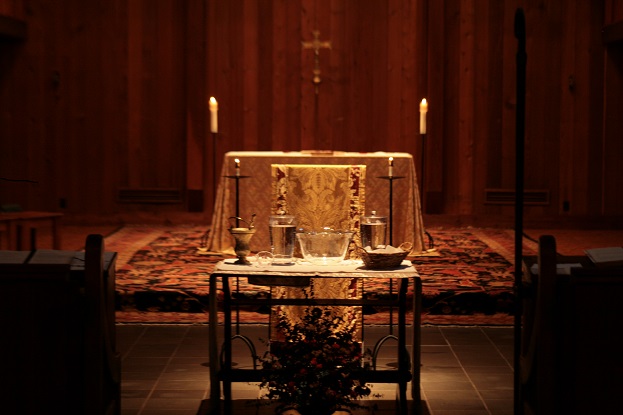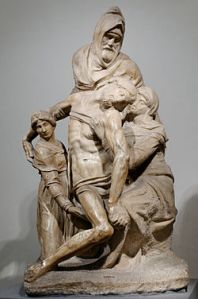
In reaction to the rejections of John the Baptist and himself, Jesus said: “I praise you, Father, Lord of heaven and earth, because you have hidden these things from the wise and learned, and revealed them to little children. Yes, Father, for this is what you were pleased to do.” (Mt. 11: 25-26) These words seem comforting and edifying but our reactions to these words tend to be governed by the resentment we feel for people who are members of an elite of some kind, experts in particular. But does Jesus really mean for us to assume that experts in biblical exegesis, for example, fail to see what ignorant people see? During the COVID pandemic, we saw severe outbursts of this resentment by people who thought they knew more about how to avoid catching the disease than the experts who created the vaccines and urged everybody to take them. Such virulent resentment is hardly the kind of insight Jesus is affirming. Although the experts seem to have done pretty well in the case of the COVID vaccines, it has to be admitted that in the past, experts have turned out to be wrong. The history of medicine is littered with ruinous theories and practices. A troubling example is that roughly up to the middle of the twentieth century, many expert scientists thought they had proved the “truth” of white supremacy. Nowadays, the opposite is the case. It helps when experts admit it when they are proved wrong. This example also suggests that something else is needed besides expertise in order to see the kind of truth Jesus would have us see, something different from what experts learn. As the famous song from South Pacific reminds us, racism needs to be “carefully taught.” Do small children have this knowledge Jesus wants until carefully taught otherwise by the world’s experts, as suggested by the famous story of Jesus welcoming the small children when the disciples try to keep them away?
Just a few verses before the one quoted here, Jesus refers to the antics of children to illustrate the rejections of John and himself. In the marketplace, children cry out:
"We played the pipe for you,
and you did not dance;
we sang a dirge,
and you did not mourn.” (Mt. 11: 17)
Is this the wisdom of children seeing what Jesus’ heavenly Abba wants us to see? In one respect, perhaps yes, insofar as the children are calling out the shortcomings of their elders, complaining that they don’t rejoice with their playful joys and don’t mourn and comfort them when they are hurt. But at the same time, the children are imitating the accusatory behavior of their elders which their elders are leveling against John the Baptist and Jesus. They are pretty well along to growing up to do the same thing the grownups are doing.
The children’s taunts can give us a notion of what Jesus’ heavenly Abba wants children of all ages to see. John the Baptist, by preaching repentance could be said to be the singer of the dirge. Because of our sins, it was a time for mourning and many did that, but the rest accused him of having a demon. Jesus came to celebrate a new way of life, his eating with tax collectors and sinners being one of the ways he healed people, but that made him a winebibber and a glutton. People like John and Jesus can’t do anything right. It is precisely this accusatory attitude to life that warps the expertise of experts and corrupts small children, leading to racism among many other evils.
As was said in the Wisdom literature, there is a time to mourn and a time to rejoice. (Eccl. 3:4) Mourning with those who mourn and rejoicing with those who rejoice centers our lives on the lives of others just as Jesus centered his life on others by eating with sinners like us. Small children have no choice but to be dependent on those bigger and stronger than they. They need their elders to mourn with them and rejoice with them. That does give children a head start, but they lose the advantage when they follow their elders in the game of every person for oneself and accusing others for their own shortcomings. Perhaps those who mourn are blessed and comforted because they mourn with those who mourn while thirsting for righteousness. This purifies our hearts so that we can see what God is doing in other people so that we can rejoice together in God’s Kingdom. (Mt. 5: 4, 6, 8)
See also: Jesus’ Yoke


 When we dip our fingers in a holy water stoup as a reminder of our baptism, how much do we really remember? Do we stop to think that the water is as explosive as the bread we receive at the Eucharist?
When we dip our fingers in a holy water stoup as a reminder of our baptism, how much do we really remember? Do we stop to think that the water is as explosive as the bread we receive at the Eucharist? John the Baptist is so closely associated with the beginning of Jesus’ ministry that it’s easy to see them as two of a kind. Both preached repentance. Both died the death of a martyr.
John the Baptist is so closely associated with the beginning of Jesus’ ministry that it’s easy to see them as two of a kind. Both preached repentance. Both died the death of a martyr. Luke stresses the contrast between John the Baptist and Jesus much more than the three other evangelists. Most strikingly, Luke does not specifically say that John himself baptized Jesus. Luke describes John’s ministry and then says Herod added to all his other crimes by putting John in prison. (Lk. 3: 19–20) Then Luke puts Jesus front and center by saying the he was baptized “when all the people were baptized.” (Lk. 3:21)
Luke stresses the contrast between John the Baptist and Jesus much more than the three other evangelists. Most strikingly, Luke does not specifically say that John himself baptized Jesus. Luke describes John’s ministry and then says Herod added to all his other crimes by putting John in prison. (Lk. 3: 19–20) Then Luke puts Jesus front and center by saying the he was baptized “when all the people were baptized.” (Lk. 3:21) Although John burned with a conviction that God was going to do something new, he had only the models of past prophets to guide him in opening a way to the great new thing. He lived in the desert, wore a camel hair coat and ate wild locusts and honey in imitation of Elijah. Like the prophets of the past, he warned the brood of vipers of the wrath to come if people did not shape up and turn back to God. (Lk. 3: 7) Again like the prophets, he told soldiers not to oppress vulnerable people. Yet again like the prophets, he rebuked his ruler, Herod. And like so many of the prophets, he was put to death.
Although John burned with a conviction that God was going to do something new, he had only the models of past prophets to guide him in opening a way to the great new thing. He lived in the desert, wore a camel hair coat and ate wild locusts and honey in imitation of Elijah. Like the prophets of the past, he warned the brood of vipers of the wrath to come if people did not shape up and turn back to God. (Lk. 3: 7) Again like the prophets, he told soldiers not to oppress vulnerable people. Yet again like the prophets, he rebuked his ruler, Herod. And like so many of the prophets, he was put to death.


